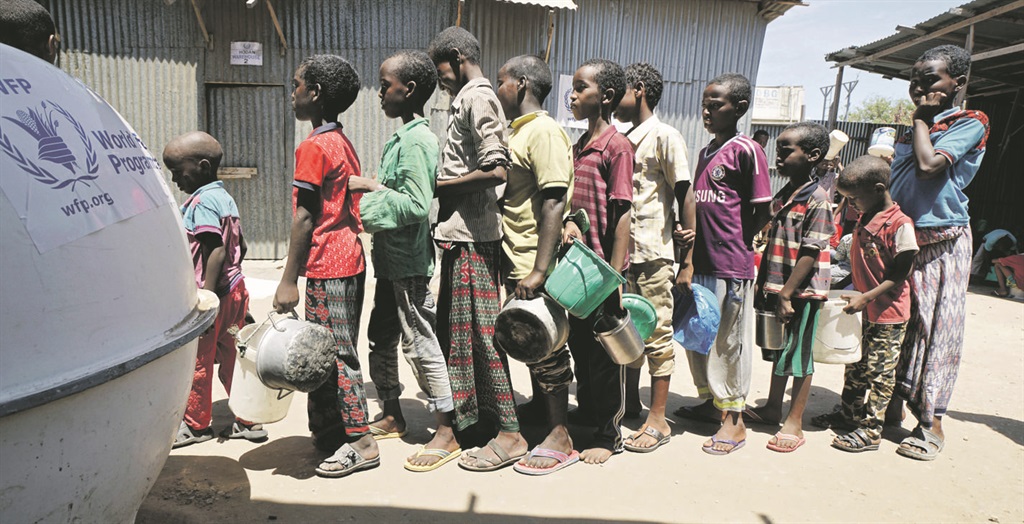
The multidimensional approach to measuring poverty has come of age.
I often wondered what the president of a country would say if he had to communicate growth numbers, that is, the gross domestic product (GDP).
US economist and Nobel Laureate Joseph Stiglitz dramatises the GDP as that measure which is insensitive to right or wrong.
It does not take into account externalities.
Another Nobel Laureate, Sir Angus Deaton, at the launch of the new global Multidimensional Poverty Index (MPI) by the UN Development Programme and the Oxford Poverty and Human Development Initiative (OPHI), argued that, while the MPI has been a praxis of the South, it is very relevant to the so-called developed North, especially the US, where pockets of poverty are rampant and sadly concealed.
Delivering the keynote address, Deaton said, “[OPHI director] Sabina Alkire and her collaborators, as well as the UN Development Programme, are to be congratulated for this major contribution to global statistics and ... poverty measurement. We also owe a debt to [eminent economist] Amartya Sen, who has insisted for many years that economists were wrong when they measured wellbeing and poverty with an exclusive focus on income.”
Multidimensional measures show a key advantage over the alternatives – what we might think of as a dashboard of measures. In the real world, deprivations in different areas are positively correlated with one another.
It’s often – perhaps usually – the same people who lack resources who also lack education, or the sanitation and clean water that protect them against infectious disease.
We cannot get our income data from one place and our health data from another; we have to have data that allow us to look at all the dimensions for each and every person at the same time.
One of the greatest advantages of the sustainable development goals (SDGs) is that they encompass the whole world, not just the poor countries. Even the World Bank now calculates its $1.90/day poverty measure for rich countries, including the US.
There are more globally poor people in the US than in Senegal, or in Nepal, and the poverty rate in the US is almost identical to that in China, in spite of the fact that the US has a GDP per capita that’s three-and-a-half times larger.
The multilateral poverty work should be extended to the US as a matter of urgency, to help Americans understand just how badly they are doing by their poorest citizens.
The OPHI started this work a decade ago, and it was given impetus by the method driven by Alkire and economics professor James Foster.
The launch of this ground-breaking work has found currency especially in Latin America and has rapidly moved to Africa.
Fifty-seven countries use and apply MPI as the basis for understanding and addressing poverty.
Over the last five years OPHI has been working with countries to encourage the UN Statistical Commission to adopt MPI for poverty measurement and, with the advent of the SDGs, OPHI raised the bar and prominence of MPI to heads of states and, at the UN General Assembly, they have shared their experiences of how they apply MPI in their countries.
Politicians could link MPI to the minds and hearts of people. Many spoke of it as a lens that is transparent, others hailed it as a lens for accountability and yet others, like in Costa Rica, said they were experimenting with it as a planning tool.
Unlike GDP which is blind to morality and externalities, the MPI matters where it matters.
GDP will show growth when, for instance, a husband goes to a striptease, has a lap dance, drinks himself beyond the limit and, on his way home, has an accident.
On arrival at home, in his drunken stupor he picks a fight with his wife and, in the process both are injured and have to go to hospital.
The net effect of all these actions is positive to the GDP.
Various businesses will reflect income: the striptease, liquor outlets, the hospital and the panel beater.
So that is the GDP.
The results of the MPI thus far cover over 100 countries, disaggregated by over 1 000 subnational regions, rural-urban areas and age groups.
The 2018 global MPI is particularly useful in identifying people who are left behind in multiple SDGs.
It answers the call to better measure progress against SDG1 – to end poverty in all its forms.
As highlighted by Alkire during the event, the global MPI serves as a tool for policymakers to design efficient multisectoral, pro-poor policies.
It is time that the private sector used this crucial lens to understand how it can deploy its trillions to solving jointly with governments one of the scandals of the 21st century.
The time for MPI as an interlocutor of the praxis between research, measurement, politics, business and action is now, and the World Economic Forum in Davos is the theatre where this should play out in January 2019.
Lehohla is former statistician-general of South Africa, former head of Stats SA and research associate at OPHI
TALK TO US
Which poverty assessment method is more constructive, GDP or MPI?
SMS us on 35697 using the keyword POVERTY and tell us what you think. Please include your name and province.
SMSes cost R1.50. By participating, you agree to receive occasional marketing material




 Publications
Publications
 Partners
Partners








